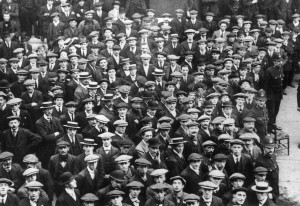I’m all in favor of the great utility of crowdsourcing and, for example, use Wikipedia, which is powered by a collaborative effort, on a daily basis. But those who laud Wikipedia as a creation of crowdsourcing are only half right: Wiki has been made possible by a collective, true, but it was created by two inventors: Jimmy Wales and Larry Sanger. The crowd can marshal great force to complete a task, but invention still doesn’t seem to me a domain of the many. Not that the people who toiled for no money to make Wikipedia such an amazing tool are less important than its creators, but the crowd needs an idea to rally around. It seems unlikely that the many can dream with the same sharp precision–let alone genius–as a Tesla, Tucker or Jobs. Joel West wondered about the same thing last month on the Open Innovation Blog:
“At the #BAexec event last week, one of the interesting questions from the floor was ‘could the iPhone have been produced via crowdsourcing?’
My immediate reaction was ‘no.’ What’s made Apple so special for the past 13 years has been the solitary, laser-focused vision of product design brought by its CEO. Of course, that’s just the supposition of a 35-year Apple-watcher.
What I think was more interesting was: what are the limits of crowdsourcing? Those who study crowdsourcing consider its advantages for accessing heterogeneous knowledge bases or sheer scale of ideas. But integrating that hodgepodge of ideas — no matter how good — can be daunting if not labor intensive.”
Tags: Jimmy Wales, Joel West, Larry Sanger

